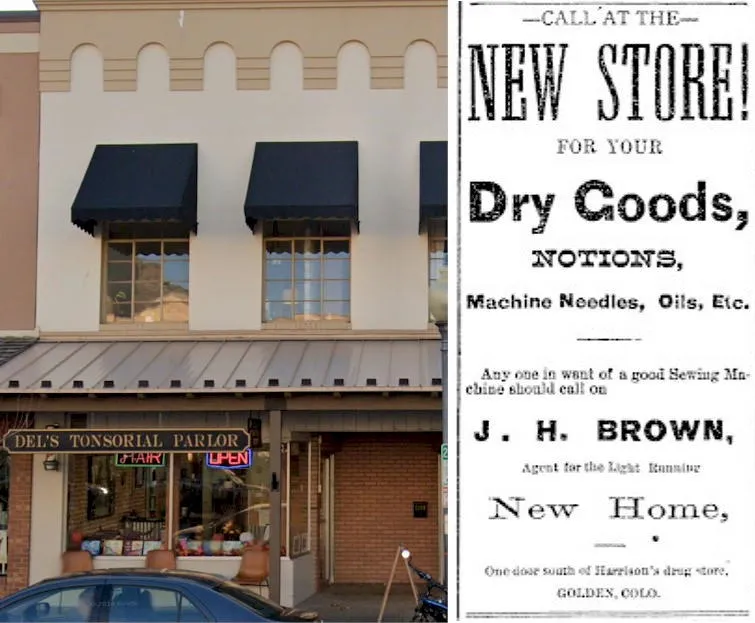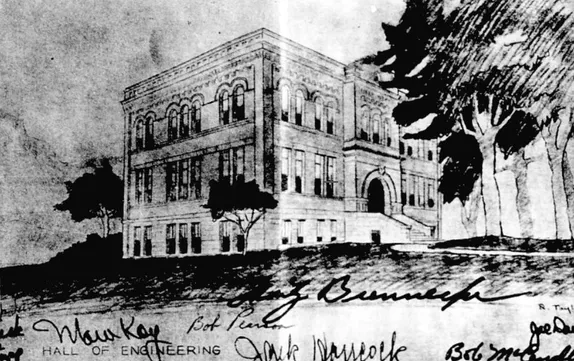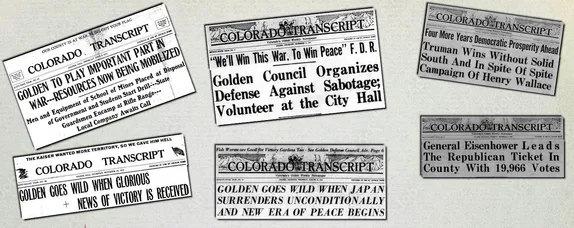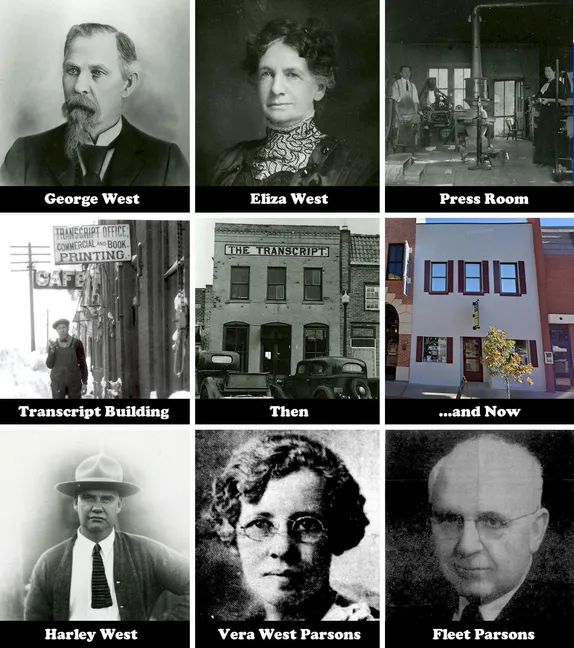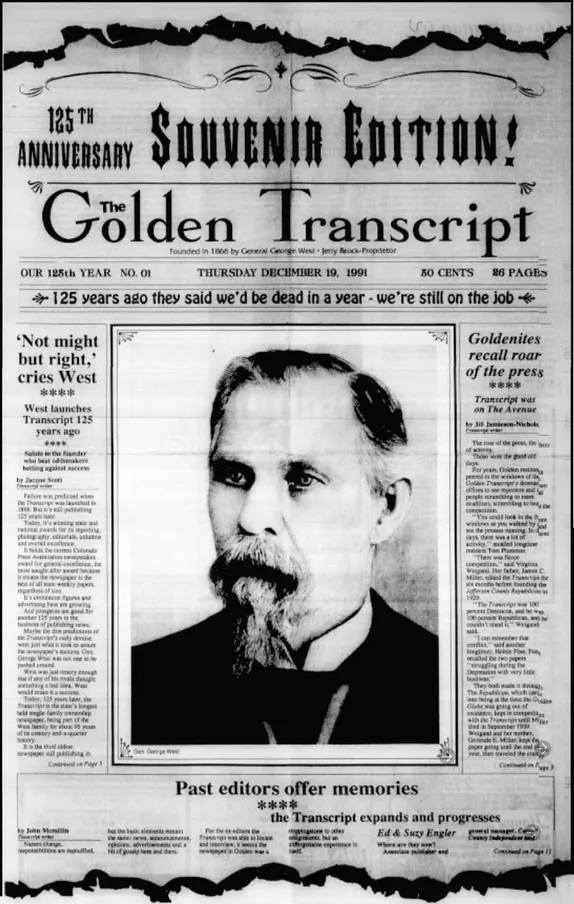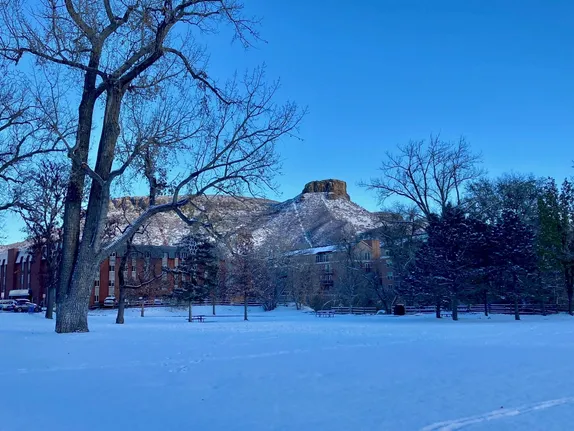Yesterday, I provided a long history of a long-lasting downtown business (Jefferson Coal and Mining Company/Thomas Ward Clothing/Wade Clothing/Hertel Clothing/McKeehen’s). Today, I thought I'd write about another long-lasting store and the family who owned it.
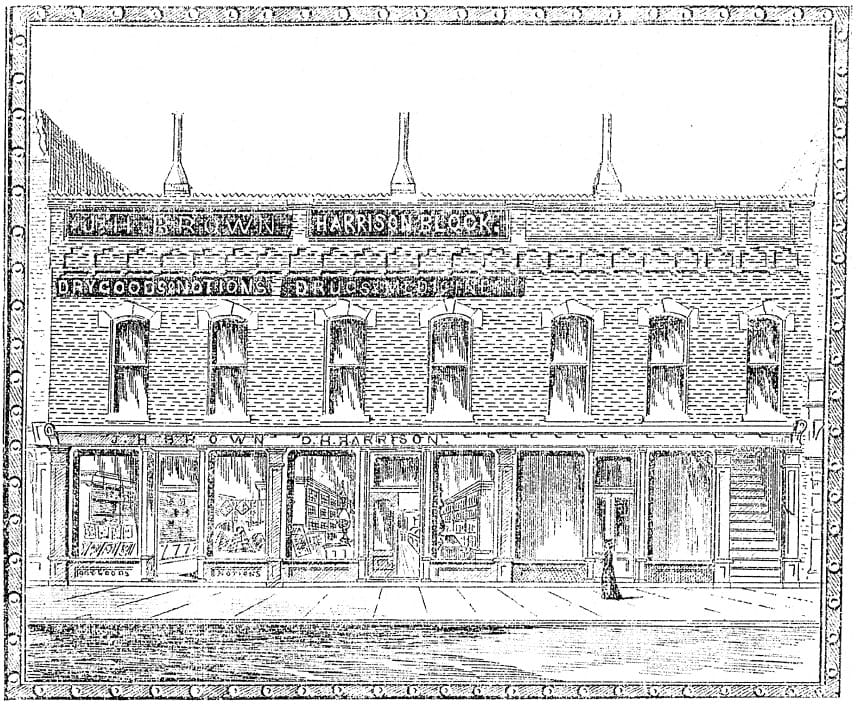
J. H. Brown opened a dry goods store in 1888 in the space now occupied by Del’s Tonsorial Parlor.
What are “dry goods?” Here’s Wikipedia’s answer: In the United States, dry goods are products such as textiles, ready-to-wear clothing, sundries, and “grocery items (such as tobacco, sugar, flour, and coffee) that do not contain liquid”. In US retailing, a dry-goods store carries consumer goods that are distinct from those carried by hardware stores and grocery stores.
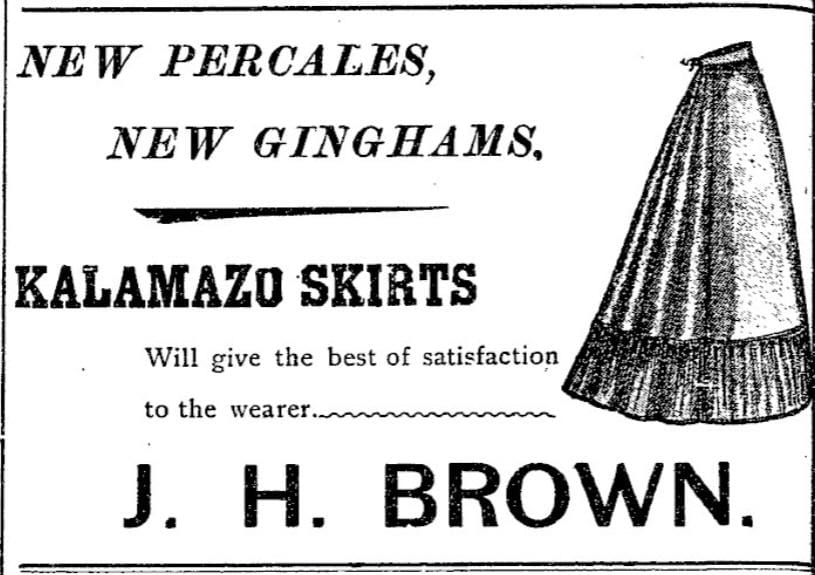
The business prospered, and in 1890, the Browns were able to build a house on an empty double lot at 6th (now 16th) and Ford. Most of the downtown merchants lived within a few blocks of the business district in that pre-automotive era. The Browns had two sons, who doubtless enjoyed playing in the extra-big yard.
The Browns were very involved in the Baptist Church (13th and Jackson). Mrs. Brown taught a Sunday School class for decades, and Mr. Brown served on the board of trustees. Mrs. Brown was also a long-time member of the Progressive Club (a social and study group). She was a founding board member and driving force behind the Golden Library.
Here's an interesting historical side-note: going to a hospital was less common in those days, so when someone was critically injured or chronically sick, they often stayed with friends, relatives, or at times in a boarding house until they either got better or died. Edward Berthoud stayed with the Browns after his dangerous fall at the Overland Hotel, and died in their care in 1908.
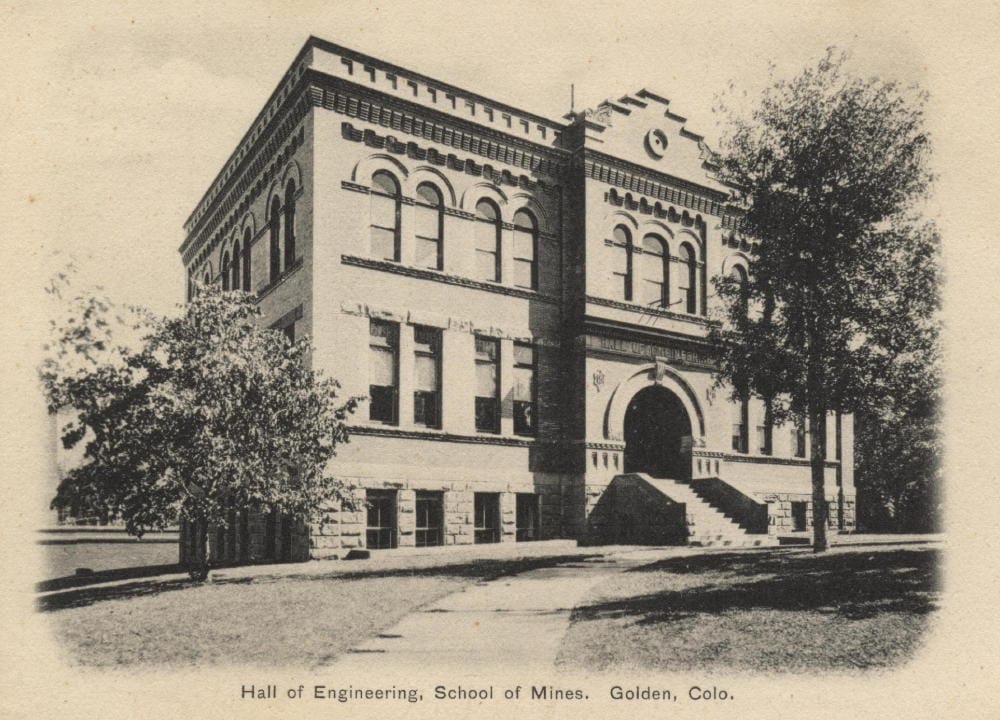
The Browns' two sons prospered. Freddie began with a bicycle company (Pierce Cycle Company) and rose to Vice President before joining an automobile company. He rose as that industry grew and wound up working for Chrysler Motors in the San Francisco Bay area. The other son, Norton, graduated from the School of Mines and became a mining engineer. He lived several places around the west and eventually became the Superintendent of the Argo Tunnel in Idaho Springs.
In later years, the Browns owned ten acres on Lookout Mountain and often vacationed in their cabin on that land. They had relatives in Illinois, and frequently exchanged visits with them.
Mr. Brown retired and sold the store in 1919. They enjoyed several years of traveling and continued their club and church pursuits. They celebrated their 57th wedding anniversary in 1927. Mrs. Brown died the following year. When Mr. Brown's health began to decline, in 1932, his son (Norton) and wife moved to Golden to care for him. J. H. died in 1933.
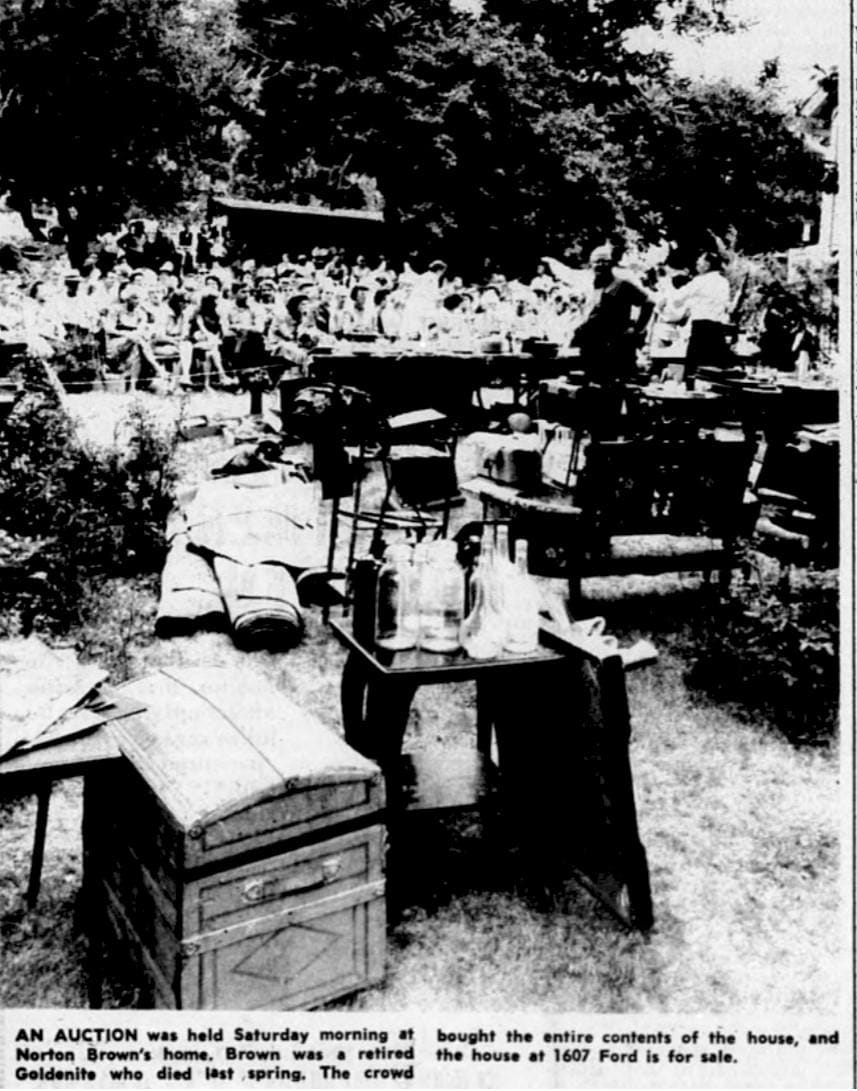
Norton Brown and his wife remained in the house on Ford Street. When he died in 1966, his possessions were possessions were auctioned off and the house was sold.
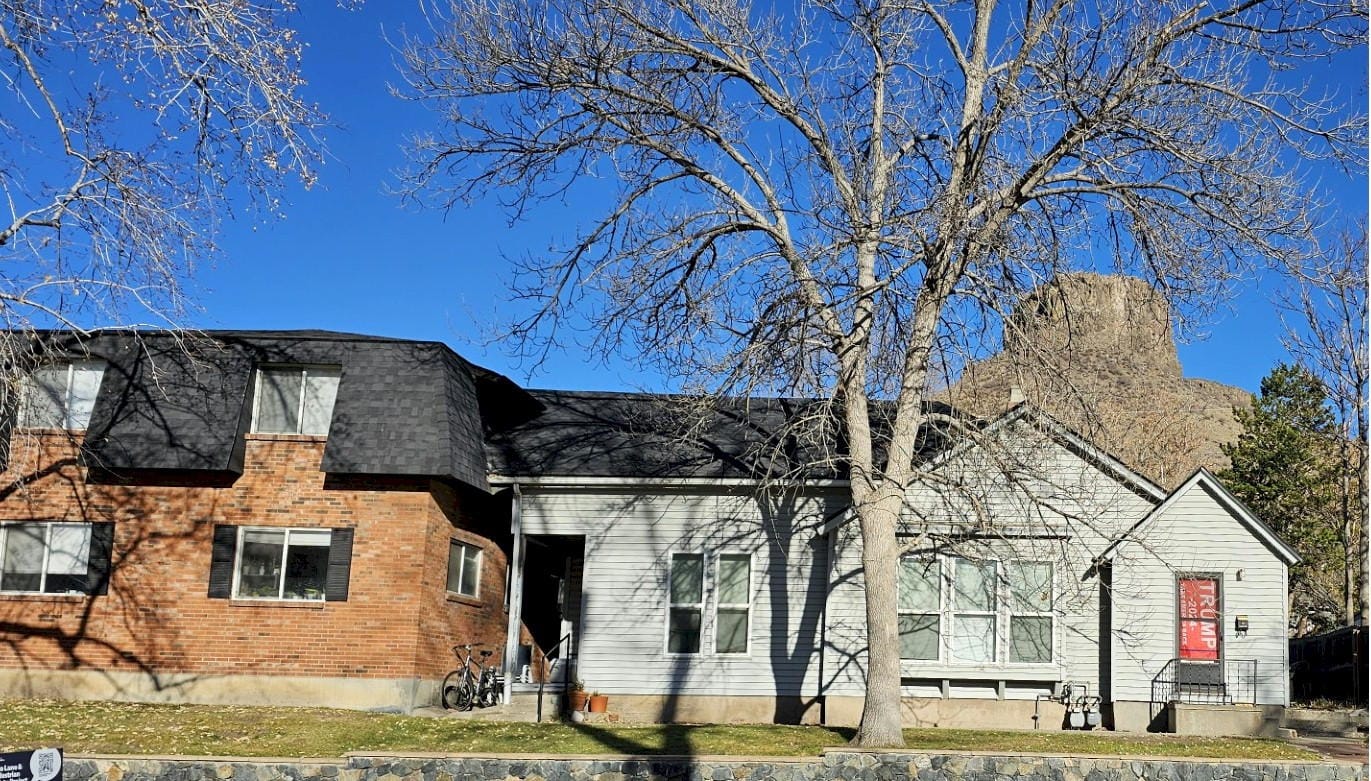
In 1973, a curious transformation took place. The Brown house was divided into three apartments and a brick apartment building was constructed in the former side-yard. The two buildings are joined by a common roof. “1607 Ford Street” no longer appears on the county assessor’s records; instead, the entire property is now identified as “521 16th Street.” The assessor’s records show the combined building as being built in 1890 and 1973.
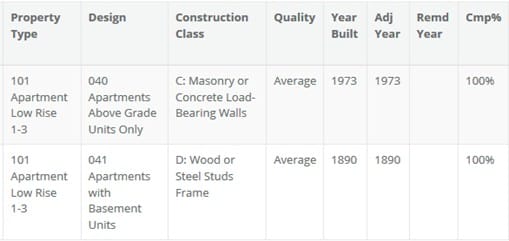
The City of Golden bought the apartments– including the Brown house–earlier this month.
Thank you to Wendy Weiman for sponsoring Golden History Moments for the month of November.

